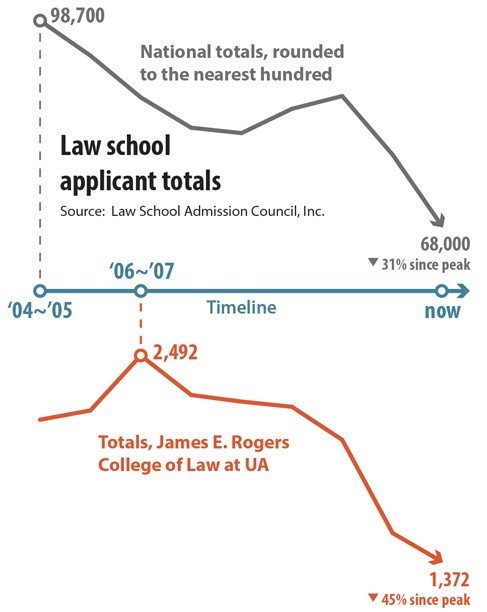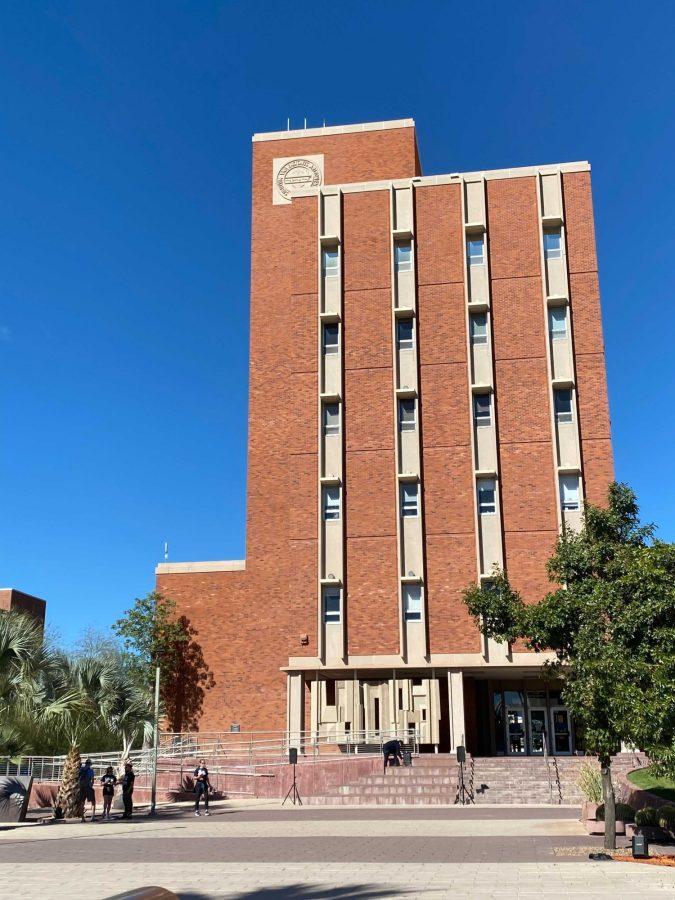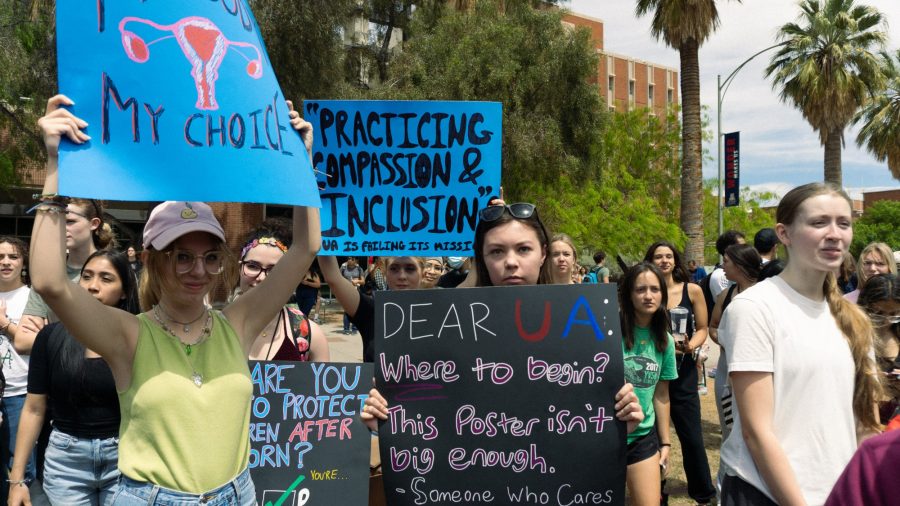The number of applicants to the UA’s law school has dropped significantly in the last several years, reflecting a decline in law school applications across the nation.
Nationally, law school applications are gearing toward a 30-year low, according to the Law School Admission Council and all but four of more than 200 law schools around the country experienced a decrease in applicants this past year, according to the American Bar Association. The James E. Rogers College of Law similarly felt this trend, with 1,372 applicants this past year, compared to 2,492 in 2006.
“I still think being a lawyer is one of the great professions in the world,” said Marc Miller, interim dean for the College of Law. “I think it’s very rewarding. I think there are many, many different paths. It’s a path that expands, creates options, but I do think that it’s important for everyone who’s thinking about law school to have thought about why and when they should do it.”
With a law degree paving new paths, Miller added the market demand isn’t declining, but rather is “different.”
In order to address the changing market, the Arizona Supreme Court passed a three-year experimental proposal in December, benefiting UA students by allowing them to take the bar exam in their third year, as opposed to after graduation.
“It effectively lowers the cost of education. It doesn’t actually change the tuition amount, but you’re able to start working in May rather than October or November,” Miller said. “And many employers, public and private, will now say ‘Until you’ve passed the bar, we won’t hire you.’”
This decision allows students to get the “ball rolling quicker” when covering debts and finding employment after school, according to Tyler Broker, a first-year law student. Out-of-state tuition is $42,283, while tuition for Arizona residents is $27,272 but Broker said he believes that after receiving a diploma, the job opportunities expand for law graduates.
“You can do so many different things with a law degree that it does open it up,” he said. “For the simple fact that completing any graduate degree shows that you’ve taken more initial steps, you can complete something.”
As someone who’s always planned on attending law school, Broker said he recommends prospective students possess a set mindset in attending law school, rather than being “on the fence” about the decision.
For some, taking the initial steps following the degree could be harder, with schools producing more graduates than there are available jobs, according to Moriah Olschansky, a sophomore studying psychology and pre-business, and member of the law fraternity Phi Alpha Delta.
“You really need to want it,” she added. “It has to be the end all, be all for you or else it’s not going to end well.”
Olschansky, who plans to attend law school, said she doesn’t foresee reasons for the hurting market to change, adding students shouldn’t weigh the decision of attending law school “lightly” or use it as a ploy to buy time for employment. Additionally, going to law school no longer assures wealth or immediately desirable jobs following school, as some may assume, unless you’re willing to put in the efforts to be at the top of your class, she said.
“I think that has been the reason that we are currently in the crisis that we are is enough people saw that this was … a way to buy time until you figure out what you want to do,” said Caylin Barter, a third-year law student. “Because everyone knows having
J.D. after your name is never going to slow you down.”









